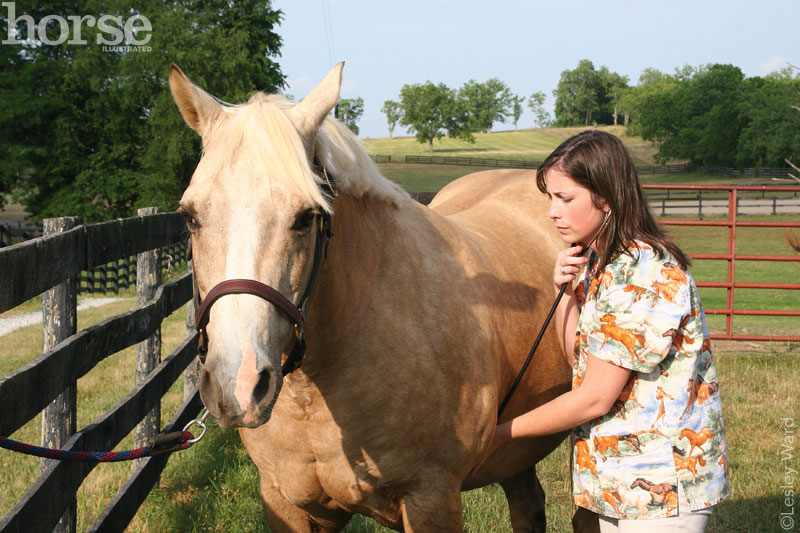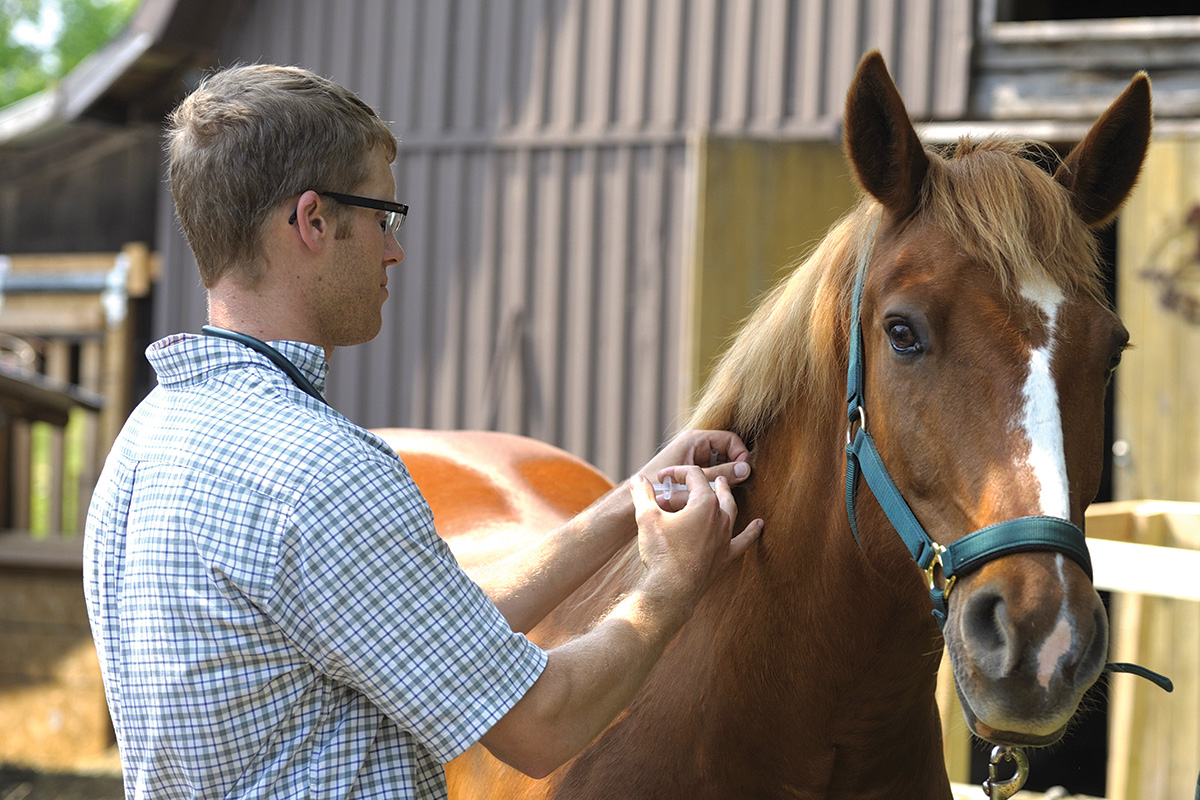Q: The vet says my 18-year-old gelding has a Grade 3 heart murmur. (It was only a 0.5 last year.) She suggested no strenuous exercise, but should I be worried about light trail rides and trotting?

A: If you think of the heart as a pump that circulates blood to carry oxygen from the lungs to all parts of the body, then you can better understand the mechanics of a murmur. The heart has four chambers, with valves separating each chamber: the aortic, mitral, tricuspid and pulmonic valves. As the heart muscle contracts, blood is pumped from one chamber to another, passing through the valves.
A heart murmur, heard with a stethoscope as a swishing sound, often occurs because of an obstruction around a heart valve or a valve that leaks because it doesn’t seal entirely shut; either condition increases turbulence of blood as it courses through the heart.
Not all murmurs are significant or cause exercise intolerance. Sometimes it’s simply a leaky valve with no adverse repercussions on how the horse feels or performs. At other times, the defect is significant and poses a danger to the horse, and subsequently the rider.
The grading scale (ranging from 1 to 5 or 6) refers to the intensity of the audible sound of the murmur as heard through a stethoscope. While less than 10 percent of murmurs in horses have clinical significance, in this case, your horse’s murmur at rest has amplified since the last exam, so it should be further evaluated.
A very useful way to determine the seriousness of your horse’s heart murmur is to have an echocardiogram performed. This is a non-invasive procedure that uses ultrasound to view images of the entire heart muscle and all the valves in order to pinpoint where the problem lies.
It is not unusual for an older horse to have a minor narrowing of the aorta around the edge of the aortic valve. This constriction causes turbulence and hence a murmur, but it isn’t likely to impact your horse’s general health. If the mitral valve is affected, however, this could have serious ramifications for your horse’s health and your safety when riding him. Any of the other valves may be affected to greater or lesser extents.
Have your vet do a thorough cardiovascular diagnostic workup, or take your horse to a vet referral center where this can be done.
Liked this article? Here are others on the heart health in horses:
Your Horse’s Heart
Collecting Vital Signs





Scary